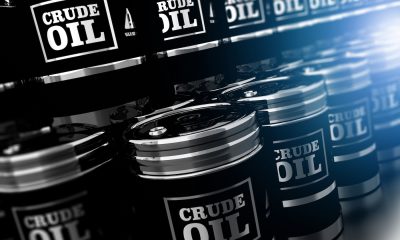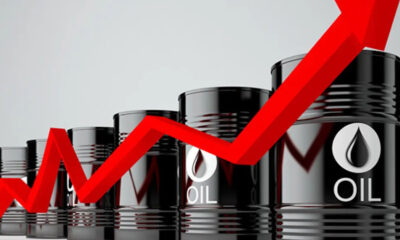Business
Subsidy removal: Fuel price hike imminent as crude oil price inches towards $100 per barrel
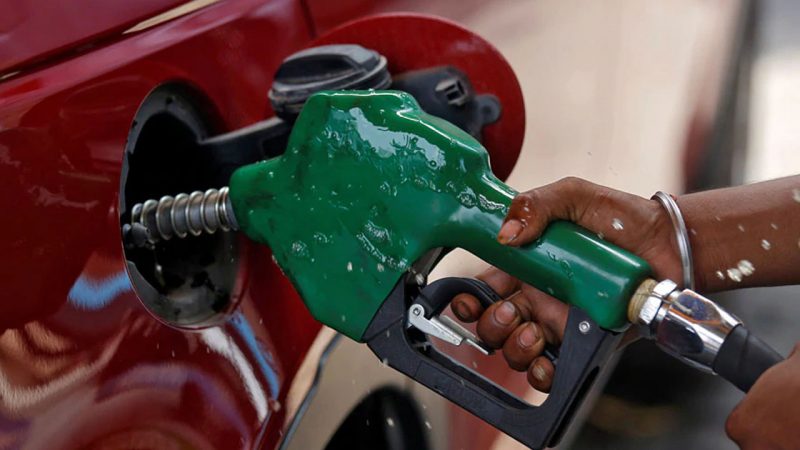
Subsidy removal: Fuel price hike imminent as crude oil price inches towards $100 per barrel
In the last three months since President Bola Tinubu announced the withdrawal of petroleum subsidy, Nigerians are still trying to grapple with the over 400 per cent increment while they continue to wait for the promised palliatives from the government.
But the increase in the price of crude oil in the international market could further increase the price of petroleum at the filling stations despite the promise by President Tinubu that PMS price will not increase further.
The crude oil price in the international market has risen to $94 per barrel, the highest in the past 10 months. Market observers believe that the price will cross the $100 mark as demand increases during winter.
In the last three months since President Bola Tinubu announced the withdrawal of petroleum subsidy, Nigerians are still trying to grapple with the over 400 per cent increment while they continue to wait for the promised palliatives from the government.
But the increase in the price of crude oil in the international market could further increase the price of petroleum at the filling stations despite the promise by President Tinubu that PMS price will not increase further.
The crude oil price in the international market has risen to $94 per barrel, the highest in the past 10 months. Market observers believe that the price will cross the $100 mark as demand increases during winter.
READ ALSO:
-
NIMC unveils self-service app for NIN enrollment, digital ID
-
Why Cardoso could wait until 2024 before taking over as new CBN boss
-
Niger signs official defense pact with Mali, Burkina Faso – warns ECOWAS
In the past, this increment would have generated excitement because it would mean more revenue for the Nigerian government; however, the increment in crude oil price means Nigerians may have to pay more for fuel.
Last month, President Tinubu had promised that price would be maintained by “addressing the inefficiencies within the midstream and downstream petroleum subsectors to maintain prices where they are without having to resort to a reversal of the administration’s policy in the petroleum industry.”
On Friday, the Group Chief Executive Officer of NNPC Limited, Mele Kyari had told some members of the House of Representatives that the NNPC Retail is moving to acquire significant market shares in the downstream sector so as to have control of the downstream market.
It would be recalled that NNPC Retail had in December acquired the retail outlets of Oando Limited.
The deal according to Kyari means that the NNPC Retail now has 30 per cent of the market and is able to regulate prices through the market share. He explained that other petroleum marketers would be forced to maintain prices because NNPC Retail won’t increase prices.
“Some weeks ago in Lagos, There was a small queue because one company increased their price by N7. As simple as this, everybody rushed to our filling stations and a queue developed. This is the security that the PIA guarantees.
“That Nigerians will have choices and they will not be exploited. We will be the market balancer. We will create stability in the market and Nigerians will not be exploited,” he said.
READ ALSO:
-
My first marriage introduced me to poverty – Iyabo Ojo
-
3 Nigerian boxers qualify for Paris 2024 Olympic games
-
Akpabio’s aide dismisses reports of imminent NASS leadership change
However, Nigerians are still concerned about the increment despite the assurance by the President and the oil chief, particularly with the deregulation of the sector.
An economist, Dr Babatunde Adeniran says an increment may be inevitable considering the factor of demand and supply which is playing out in the international market.
“Yes. It is inevitable because they (marketers) adjust prices depending on the market realities, i.e, forces of demand and supply,” Adeniran says while responding to a question on the chance of a price hike.
Alternatives energy sources
President Tinubu had in a national broadcast in August promised to invest N100 billion in Compressed Natural Gas (CNG) buses to mitigate the impact of subsidy removal.
“The Nigerian Government has put aside N100 billion to purchase 3,000 twenty-seater buses powered by Compressed Natural Gas for deployment in all the states in the next nine months,” President Buhari said.
Adeniran urged the government to provide assistance to the masses by subsidizing the CNG kits.
“One of the means to mitigate the effect is to source for an alternative source of energy. One such alternative is the CNG. It remains the best source since it is relatively cheaper and cleaner.
“But to assist, the government can subsidize the CNG kit. If the government is able to achieve that, more people will embrace this.
“Nigeria has the capacity to meet the demand; we currently flare a lot of gas. Instead of flaring the gas, we can channel it into CNG which would be more productive,” he said.
Subsidy removal: Fuel price hike imminent as crude oil price inches towards $100 per barrel
Business
I’m honoured, excited over World Bank’s appointment – Dangote
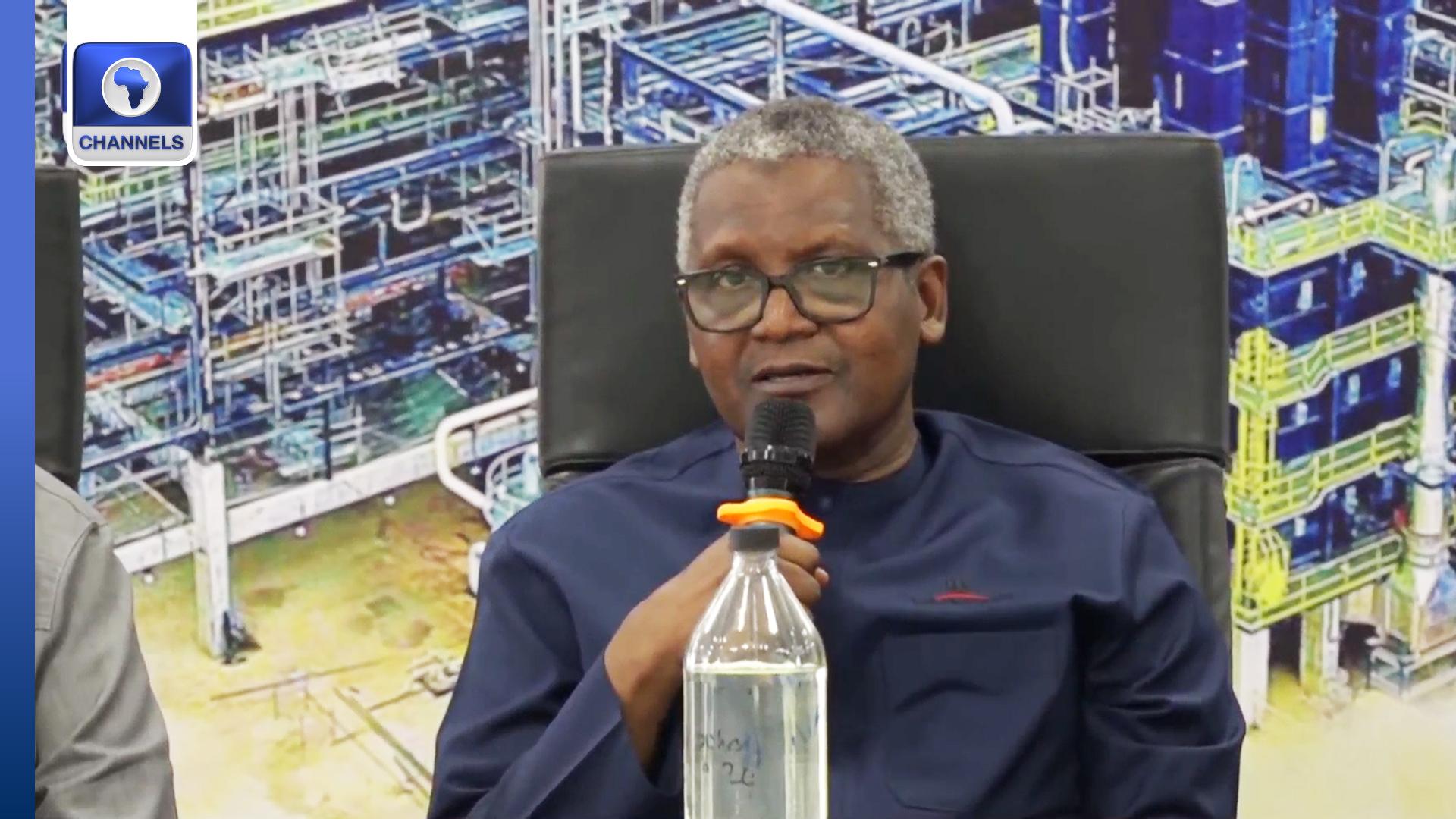
I’m honoured, excited over World Bank’s appointment – Dangote
President and CEO of Dangote Group, Aliko Dangote, has expressed gratitude following his appointment to the World Bank’s Private Sector Investment Lab, a global initiative aimed at accelerating private investment and job creation in emerging economies.
In a statement confirming the development, Dangote described the appointment as both an honour and a reflection of his long-standing commitment to economic development through private enterprise.
“I am both honoured and excited to accept my appointment to the World Bank’s Private Sector Investment Lab, dedicated to advancing investment and employment in emerging economies,” Dangote said.
“This opportunity aligns with my long-standing commitment to sustainable development and unlocking the potential of developing economies.”
He referenced the successes of the so-called Asian Tigers, economies that experienced rapid growth through strategic investment, as a source of inspiration for advancing similar outcomes in other parts of the world.
The World Bank announced Dangote’s inclusion on Wednesday as part of a broader expansion of the Lab, which enters a new phase focused on scaling up solutions that attract private capital and generate employment in developing countries.
Other newly appointed members include Bill Anderson, CEO of Bayer AG; Sunil Bharti Mittal, Chairman of Bharti Enterprises; and Mark Hoplamazian, President and CEO of Hyatt Hotels Corporation.
READ ALSO:
- Akpabio to represent Tinubu at Pope Francis funeral
- PDP will come out stronger, Saraki reacts to Okowa, Delta gov defection
- Countries eligible to enter US without visas for 90days (full list)
World Bank Group President Ajay Banga noted that the expanded membership underscores the institution’s focus on integrating private-sector leadership into its strategy for global job creation.
“With the expanded membership, we are mainstreaming this work across our operations and tying it directly to the jobs agenda that is driving our strategy,” Banga said.
“This isn’t about altruism—it’s about helping the private sector see a path to investments that will deliver returns, and lift people and economies alike. It’s central to our mandate.”
The lab, which was co-chaired in 2023 by Canadian Prime Minister Mark Carney, previously sought to mobilise £1 trillion in sustainable investment, particularly targeting energy transition projects in emerging markets.
Aviation
Air Peace suspends flights nationwide over NiMet strike
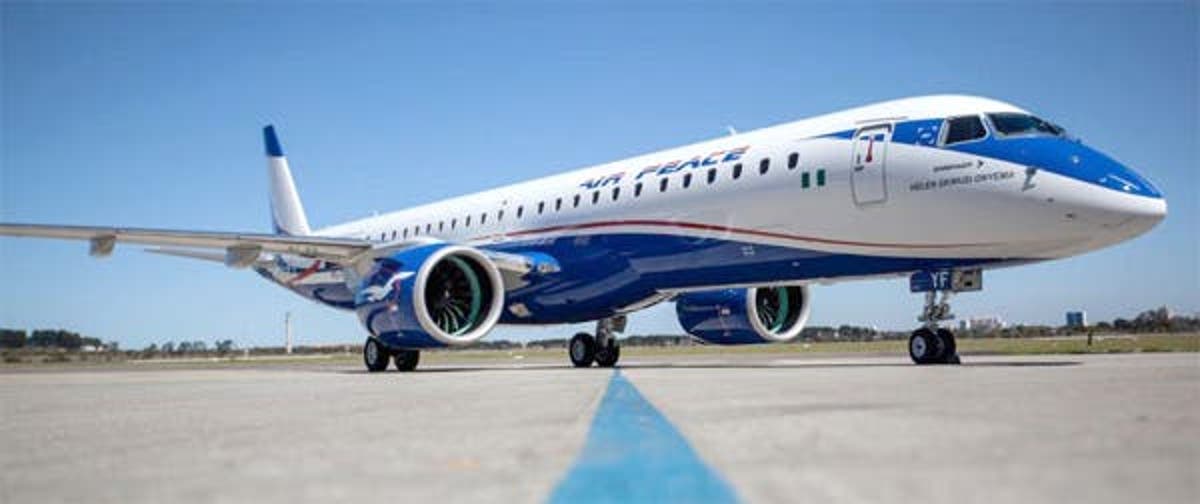
Air Peace suspends flights nationwide over NiMet strike
Air Peace has suspended all its flight operations across the country due to the ongoing strike by the Nigerian Meteorological Agency (NiMet).
The airline said in a statement on Wednesday that it was also suspending operations due to the unavailability of QNH (hazardous weather) reports required for safe landings.
“Due to the ongoing NiMet strike and the unavailability of QNH (hazardous weather) reports required for safe landings, Air Peace has suspended all flight operations nationwide until the strike is over,” Air Peace said.
“Your safety is our top priority. We appreciate your understanding and will share updates as the situation unfolds.”
The airline had earlier announced that the NiMet strike could lead to flight delays and cancellations across its network.
Air Peace added that it was monitoring the situation and working with relevant stakeholders to minimise the impact on customers’ travel plans.
Employees of NiMet commenced a nationwide indefinite strike over welfare issues on Wednesday.
Some of the issues raised involve “NiMet’s refusal to negotiate or implement agreed financial allowances and unresolved entitlements,” including wage awards, peculiar allowances, and outstanding payments from the 2019 minimum wage.
They also accused the management of the agency of withholding important documents, ignoring requests for inclusion of omitted staff in past payments, and neglecting key training programmes in favour of executive retreats.
Business
Nigeria’s gas production increases by 15.6% to 227,931.65 mscf

Nigeria’s gas production increases by 15.6% to 227,931.65 mscf
Nigeria’s gas output has increased 15,6 percent month-on-month, MoM, to 227,931.65 million standard cubic feet, mscf, in March 2025.
But on year-on-year, YoY basis, the nation’s gas output recorded a marginal increase to 227,931.65 mscf in March 2025, from 198,353.62 mscf, recorded in the corresponding period of 2024.
Data obtained from the Nigerian Upstream Petroleum Regulatory Commission, NUPRC, Gas Production Status reports indicated that of the total of 227,931.65 mscf produced in March 2025, 119,552.75 mscf was associated while 108,378.90 mscf was non-associated gas.
Associated gas is extracted in the process of producing crude oil while non-associated gas is produced without crude oil after much investment, exploration and development.
The Ministry of Petroleum Resources (Gas), which is directly involved in the development of policies, targeted at increasing investment in the sector said efforts have been made to increase investment and production of gas in Nigeria.
Similarly, in its recent report obtained by Vanguard, the Nigerian LNG Limited stated: “We are fully committed to expanding our operations with the NLNG Train 7 Project, which will boost our production capacity by 35%, increasing from 22 Million Tonnes Per Annum (mtpa) to 30 mtpa. This project underscores our role as a key player in the global LNG market and positions Nigeria as a top-tier supplier of LNG, leveraging its vast proven gas reserves of 202 trillion cubic feet (the 9th largest globally).
Vanguard
-

 metro1 day ago
metro1 day agoTruck falls from Lagos bridge on two buses
-

 metro1 day ago
metro1 day agoHow Access Bank staff secretly filmed 400 colleagues naked in office
-

 Education2 days ago
Education2 days agoJAMB officials seize candidates’ hijab at Caleb varsity, Muslim students kick
-

 metro3 days ago
metro3 days agoOmokri : How Tinubu’s political mastery started with Abiola, says El-Rufai, Obi’s forces can’t stop him
-

 Entertainment7 hours ago
Entertainment7 hours agoKollington fires back at Wasiu Ayinde K1
-

 International2 days ago
International2 days agoUS releases 41 countries granted 90-day entry without visas (full list)
-

 metro1 day ago
metro1 day agoDSS arrests British Army Officer, others, seizes 57 AK47
-

 metro3 days ago
metro3 days agoGroom cancels wedding, marries another lady same date, venue

